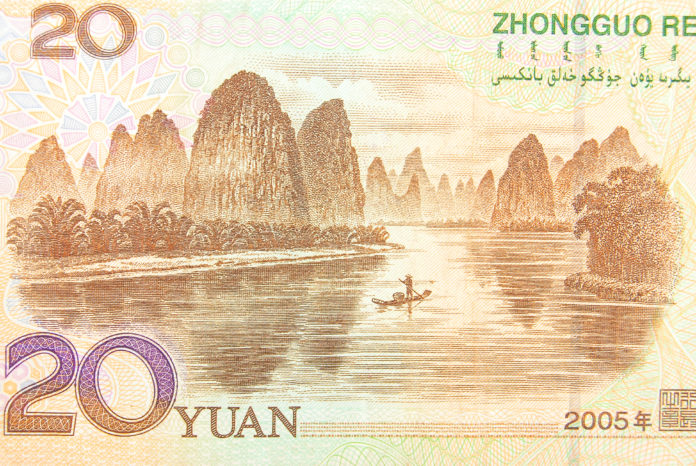Wall Street’s markets have been in full-fledged panic mode since yesterday morning. The Dow shed 1.3% on Tuesday, and dropped another 1% at the start of trading Wednesday. Presidential candidate Donald Trump was quoted as saying the potential fallout could ‘devastate’ the United States.
It’s all a reaction to a series of moves by the Chinese government to manipulate, or devalue, their main form of currency (known as the yuan or the renminbi.)
Since the beginning of the week, the yuan has fallen 3.6% against the U.S. dollar. The exchange rate now stands at 6.42 yuan per dollar—the weakest level in four years.
“Currency Wars”
While a strong dollar may sound like a great thing for U.S. consumers, many businesspeople and economists lament its continued strength because of the impact on international trade. The strong dollar makes our imports cheaper, while increasing the price on exports—which again, sounds like a positive—until it affects demand for those exports. This can hurt profits and ultimately, result in corporate cutbacks and loss of employment.
As for the stock market, the first several months of 2015 have provided us with ample evidence that a strong dollar can be a burden for equity values. Lesser corporate profits were largely to blame for a lackluster first quarter, where GDP stayed flat. After Tuesday’s tumble, the Dow stands at -2.5% for the year.
That brings us back to China, who has fielded calls from Washington for years to take greater control over strengthening its currency, given the increasing power of the Chinese economy and the massive number of exports coming from that nation.
Tuesday, China finally heeded the call—but they moved in the opposite direction, devaluing their currency and effectively giving further strength to the dollar. This touched off market fears of a currency war, in which countries artificially weaken their currency to gain that competitive advantage in international trade.
In the short term, this means China will be paying for its commodities with cheaper currency—a possible explanation for Tuesday’s 4% drop in oil prices. But the intermediate term effects could be more serious to the U.S. economy:
Additional Currency Cuts: Not long after China’s cut, the currencies of Malaysia and South Korea dropped in tandem. Even Australia’s dollar saw a drop for the day. If the cuts to the yuan continue, it stands to reason that this could rattle an already fragile global currency market.
Direct Impact on U.S. Economy: Aside from the aforementioned impact on trade, China’s move could impact the timing of the Federal Reserve’s first interest rate hike in a decade—long anticipated to occur this fall.
China’s government has said their ultimate goal is to devalue the yuan by approximately 2%–but added in a press release that currency market moves would determine each day’s starting point.
The intermediate and long-term effects of any potential currency war will unfold over the coming weeks. But with oil prices at a six-year low and uncertainty over the future of interest rates, the last thing Wall Street needed was greater concern over China—the world’s second-largest economy.













